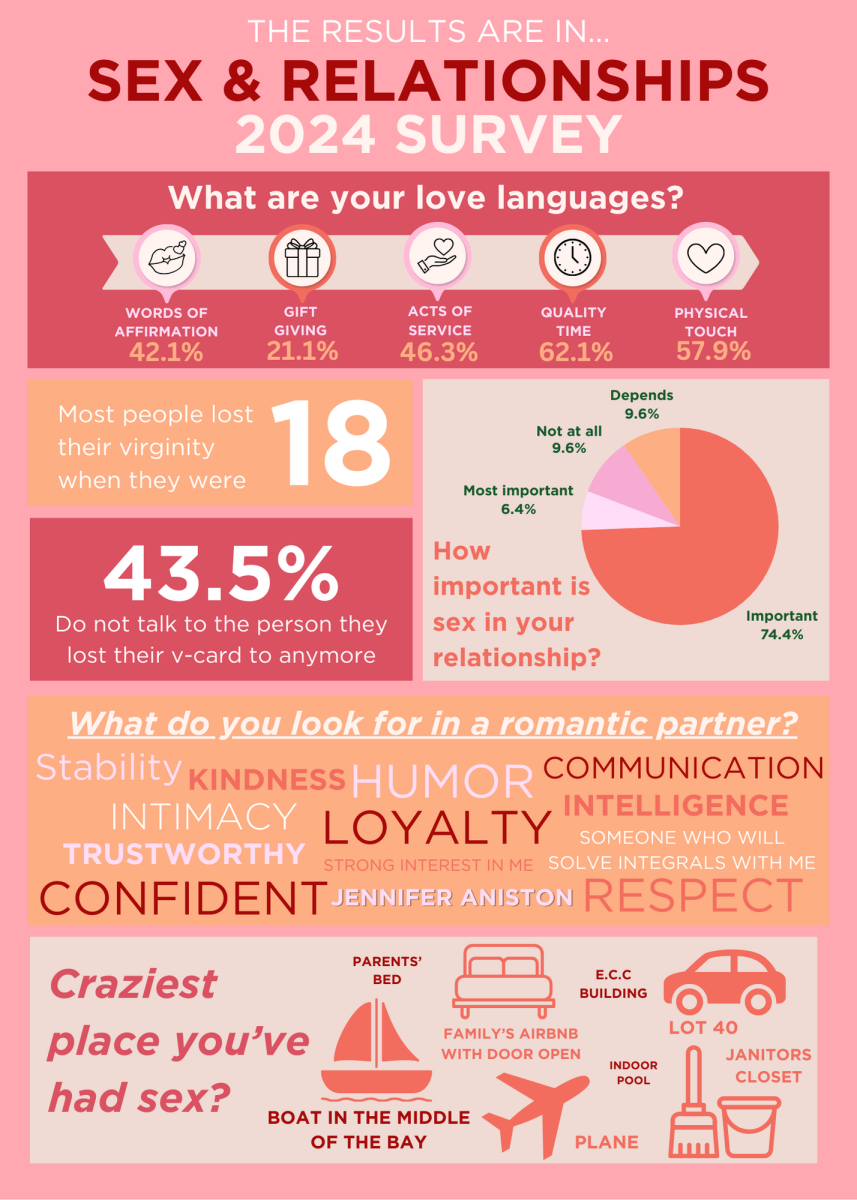
Social media is influential in shaping adolescents’ decision-making skills. With the rise of relationship gurus, teenagers’ perceptions of love are morphing into unrealistic and hard-to-achieve standards. Dating coaches now give advice stemming from sexist content, leaving an impressionable mark on young adults. Content creators such as TikToker Shera Seven have interesting takes on relationships that often stray users from their original values and overall goals concerning relationships.
Young adults and adolescents ranging in age from 15 to 21 are on journeys of self-discovery. In an age where technology dominates our social interactions, navigating the dating world can be challenging as it is.
My parents are first-generation Muslim immigrants from the Ivory Coast in West Africa. The only piece of advice I’ve received surrounding the topic of dating was to “wait until marriage before having sex.” Culture, religion, sex and sexual orientation all come into play when navigating dating culture. At times, it seems like the only practical way to avoid asking a parental figure embarrassing questions would be to get advice from social media influencers.
With platforms such as TikTok, Instagram and X (formerly known as Twitter), dating advice is being shown to users with targeted algorithms. Although I have not personally sought out advice from relationship gurus, I often find myself listening to these creators and their narratives. Seven has interesting takes on the role of finances in relationships; according to Seven, if a woman and her partner split household expenses, the woman should cheat on them and find a man willing to pay all of the expenses.
With takes like her iconic “sprinkle, sprinkle” phrase — the belief that dating should be transactional — Seven has swayed the way I look at dating and relationships. I often find myself entertained and agreeing with her ideology of being in financially beneficial relationships. After watching her videos, I questioned my own dating history and asked myself what my former relationships have provided me. This type of content encourages me to question if my past and future partners have been or will be financially beneficial.
Although this creator has changed my perspective, I can also reflect on how harmful this rhetoric can be. She suggests that women should be financially dependent on a man and should pick their partners based on financial gain. While entertaining to view, the advice that relationship gurus offer should be taken with a grain of salt. Giving advice that one should be financially dependent on a man is especially harmful to young girls, as money should not always be a top priority when navigating relationships. Money can cloud judgment and lead to an imbalance of power dynamics in relationships, leading one party to have more influence and control.
It’s unlikely that the average teenage girl could depend on teenage boys to be financially independent and provide for both parties, which has raised concern among Seven’s viewers.
Seven has suggested that viewers who want better financial results should date older men. The finance-based premises of age-gap relationships are extremely harmful, as young women are vulnerable and regularly preyed on by older, financially stable men. There should be a trigger warning on all social media platforms when advising young women to date older men for financial gain, as these relationships can rapidly take a turn for the worse.
Although no one is required to watch this content, these relationship gurus have a significant influence on the developing mind and receive millions of views, which equates to thousands of dollars.
The main purpose of these creators providing dating advice is to grab the attention of thousands to obtain views for their own personal gain. There are plenty of dangers in advising young women to date solely for money and the best relationship outcomes. Even being vigilant can’t prevent unforeseen negative outcomes from participating in these types of transactional relationships, especially when the content that Seven makes generates thousands of views and has multiple commenters agreeing with her stances. As a result of this type of content, some members of Generation Z have suggested that receiving gifts and trips from a man are things to brag about.
Relationship gurus often exploit people who want lifestyles that are not sustainable for the average person. Social media users have contributed to the glamorization of young women being viewed as “kept women” or “trad wives” by encouraging women to believe that there is a problem with being attractive but not receiving compensation for existing.
The promotion of this lifestyle can also take a toll on young men’s attitudes toward relationships as well, as the harmful rhetoric places worth on how much a man’s income is. This would suggest that young men should earn money to take care of a woman; they should be able to derive their worth in relationships from within, entirely divorced from anything financial.
The way that teenagers make decisions, especially when it comes to relationships, is greatly influenced by social media. Teenagers’ unrealistic expectations of love have been shaped by the rise of relationship gurus on social media sites. By negatively influencing impressionable young adults, dating coaches regularly give out advice based on sexist and gender-baiting content. Although content creators such as Seven present intriguing viewpoints on relationships, their rhetoric tends to pull users away from realistic dating expectations, further warping teenagers’ perceptions.
















